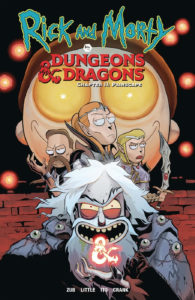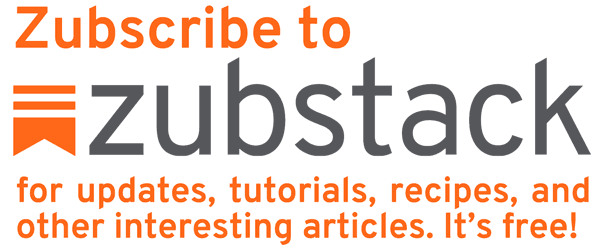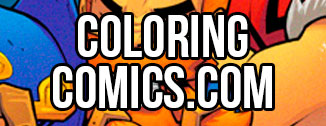Last time in my tutorial series about communication I talked about staying organized. This time it’s all about tone.
Before the advent of digital-everything, the majority of freelancers lived in close proximity and interacted with comic publishers far more directly. There was a lot of face-to-face discussion, phone calls aplenty and all the nuance of human behaviour that comes with direct communication. In the modern era, with people working around the globe, most contact is filtered through email, tweeting or texting. Barring the occasional convention or business trip those mediums have become the replacement for in-person interaction. The quality of your emails, blog posts or tweets are the way people get to ‘know’ you and how they judge your character.
What this means is: How you communicate is just as important as the content itself.
Quality:
My friend Wyeth Johnson, Art Director at Epic Games, explained in his Animex presentation this year how the Human Resources team at Epic penalizes applicants who have spelling/grammatical errors in their cover letters or resumes, even if they’re applying for art-related positions at the company. You may think that sounds finicky and short-sighted, but their reasoning is sound – If an applicant isn’t detail-oriented enough to make sure their initial correspondence is flawless, how can the company expect them to deliver high quality detail-oriented production work under a strict deadline? That first impression is absolutely crucial and it starts or stops everything after it.
When I’m emailing someone new I do everything I can to make sure it reads well. Spell check and grammar check is a must. I know a lot of people read emails on their phone so I try to keep my messages bite-sized with paragraph breaks clearly denoting ‘blocks’ of information that all go together. I re-read sentences out loud to make sure they’re clear, don’t ramble, and don’t use the same word over and over again. I probably spend 6-8 times as long writing initial correspondence compared to the time I’d spend drafting up a regular email.
When I send out professional writing (pitches, scripts, etc.) I make sure it’s formatted properly and well organized. I want clients to know that I take their assignments seriously and that they’re paying for something I’ve paid attention to.
When I’m posting something online (like this blog post), I’m extra-careful about what I say and how I say it. Those words are a reflection of who I am, a publicly accessible archive of my attitude and capability that anyone can come across down the road. If I see a mistake, I correct it as soon as possible, even if it’s just a tweet or Facebook status update. Attention to detail counts.
After a relationship is established and things are rolling smoothly, it gets easier. When I send a quick email to a friend or a rapid reply to someone I’ve worked with for a while I’m not as careful and I know typos and run-on sentences will find their way in there. The overall impression of my attitude and quality of communication has previously been set. My formal work submissions are still carefully checked, but the other communication happening around it gets a bit more relaxed.
Attitude:
Tone is also really important when it comes to professional communication. Again, if someone has never met you in person the only thing they have to gauge about who you are is the text you’ve typed.
Does your communication come across as confident (but not cocky), clear (but not terse), and capable (but not know-it-all)? If you read your blog, your Facebook, your emails or your Twitter feed as a complete stranger, what would you think of the person who wrote that material? Would you hire them?
Like everyone else, I have times where I’m extremely negative, emotional, frustrated or full-on angry. I’m not perfect about it, but I try really hard not to bring that stuff online or send that nastiness out to people over email. I’m thankful I have a few near and dear friends I can contact to use as a sounding board for that kind of stuff so it doesn’t have to be permanently archived online for colleagues and strangers to see. The initial rush of adrenalin that comes from venomous output is rarely worth the troubles it will cause later on.
Tonally, my communication tends towards “conversational professional” in nature. It’s relatively formal, formal enough to show I can write competently but not English Professor-level intimidating in my choice of words or writing structure. My written grammar can be a bit loose at times, sort of like I’m typing up a conversation, just with the “um”, “hmm”, and “yeah” parts taken out.
The impression I hope I leave with people is that I’m conversational, approachable and organized. Although I make a conscious choice to come across that way in my professional correspondence, it’s not like I’m “manufacturing” it. In general that’s how I am in person as well, so I carry that same attitude over to my online chatter, adding in an extra editorial pass to ensure I make the right impression.
I don’t think any of the above is obscuring who you really are, it’s about emphasizing positive traits that will improve business relationships and dialling back negative ones that can hurt them. As much as we all wish people could instantly see how genuine and amazing we can be, all they have to go from is what we present to them. Set the right tone and you’ll get more chances to impress people with your work.
If you find my tutorial blog posts helpful, feel free to let me know here (or on Twitter), share them with your friends and consider buying some of my comics to show your support.





 Zub on Amazon
Zub on Amazon Zub on Instagram
Zub on Instagram Zub on Twitter
Zub on Twitter
Okay. I have been reading tons of advice blogs for the past few weeks. My reaction: aaaahhhhhh!
“A rolling stone gathers no moss.” “Beauty is in the eye of the beholder.” “Be true to yourself and you will never fail.”
Etc…
Can you please just get to the core. “£#<$ off!" That's what all this amounts to. It's like the masons. If you want in, make sure your dad's a member. Be honest, who did you know to get into this game? Not that you don't deserve it, you do. Your work is stellar. But I just want everyone to admit that unless you got a hook up, you don't really have a chance.
None of anyone's advice, not just yours, does anything for anyone. It's all meaningless, self-help aphorism with little to no application.
Kings are born. Peasants are blead.
There is only one way to make it (other than birth)… Make as much noise as you can ($) until the king makers sense the cents that could be clanging in their coffers. That's it. The rest is just "a lonely drop in a massive ocean."
The Roaring Peasent
You’re doing terrific, Jim. Forget the witless bullshit
this rude Dan Fritz character is on about. None of his
sleazy-sounding, unprofessional advice will EVER be of
value in any respectful career. He should stick to corrupt entrepenuering (or by the sound of his cocky attitude, social media scams), what with all that stereotypical con artist drivel :mad:. It’s dedicated work, organisation, sociability, and courtesy that always makes the cut, not bribes or nepotism. Maybe Dan Fritz should learn that, instead of wasting his time thinking up and spouting pretentious, pseudo-academic Donald Trump-esque advice.
P.S. Get off your lazy butt and get a real job, Fritz. Nobody
is even impressed or ‘enlightened’ by your disgusting and
pathetic speeches. It’s fools like you that need education
:roll:.
I do love being in the year 2022 and seeing this in response to a reasonable advice post about professionalism online.
Where are you now, Dan? Did your attitude get you very far? We in the far off future wish to know what became of you. I feel like an archeologist musing over a broken clay pot.